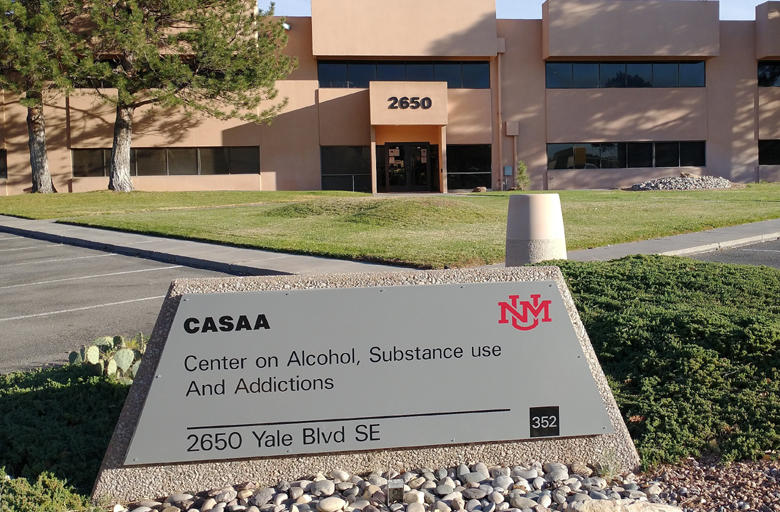NIDA Funded Research
The U.S. is experiencing an opioid overdose epidemic that increased during the pandemic. American Indian/Alaska Native (AI/AN) people have high rates of opioid overdose mortality. AI/AN women were 8.7 times more likely to be diagnosed with opioid use disorder while pregnant. This Facebook intervention aims to reach AI/AN woman to improve stress management and community resilience to reduce the likelihood of returning to opioid use. This randomized controlled pilot trial will follow these AI/AN women for 6 months to learn about the effectiveness of this Facebook intervention and prepare the foundation for future larger trials.
A majority of inmates in correctional institutions are substance involved-meaning that they have substance use disorder, were under the influence of substances during their offense, stole to buy drugs, and/or violated drug or alcohol laws. Substance use is major barrier to successful re-entry after prison and a key driver of re-admission to prison. The ultimate goal of our project is to improve local community public health and safety outcomes for reentering justice-involved individuals who use or are at risk for using opioids. The purpose of this study is to (1) increase receipt of appropriate treatment and related services among justice-involved adults, especially those with Opioid Use Disorder; (2) improve public health (e.g., lower opioid and other substance use, reduce opioid overdoses, reduce opioid deaths) and public safety (e.g., lower recidivism) outcomes; (3) compare two system-wide implementation approaches to increase service linkage and treatment receipt, and (4) examine the impact of these two approaches on client-level opioid- related outcome.
Chronic pain is common, costly, and debilitating. Opioid prescription in the treatment of chronic pain is frequent and carries a consequent risk of poor treatment outcome, as well as higher morbidity and mortality in a clinically significant number of patients, particularly those who meet criteria for opioid dependence. The overall aim of the present study will be to determine the efficacy of an integrated psychosocial treatment in veterans with chronic pain, who are taking buprenorphine for the treatment of OUD. To examine this aim, we will utilize a randomized design to assess the efficacy of two empirically supported interventions: Acceptance and Commitment Therapy for chronic pain and Mindfulness Based Relapse Prevention for substance use and misuse. (Learn more)
Chronic pain and opioid use disorder (OUD) are major public health problems. Despite the alarming increases in opioid misuse and OUD, few integrated treatments target both chronic pain and OUD. Integrated holistic treatments are desperately needed that simultaneously address pain and opioid use, the fundamental causes of pain and OUD, and that focus on whole person functioning and well-being among individuals with chronic pain and opioid misuse/OUD. The University of New Mexico (UNM) Integrative Management of chronic Pain and Opioid use disorder for Whole Recovery (IMPOWR) Center will take an integrated and holistic approach to improving the lives of patients with chronic pain and opioid misuse/OUD via tailored intervention approaches to meet the needs of diverse individuals in diverse communities. We will explicitly target increasing quality of life and engagement in valued activities, the cultural centering of interventions to meet the needs of diverse patient populations, and reducing stigma of chronic pain and opioid misuse and OUD. (Learn more)
This Mentored Patient-Oriented Research Career Development application (K23) will provide protected time for Dr. Margo Hurlocker to become an independent researcher at the University of New Mexico (UNM) and Center on Alcohol, Substance use, And Addictions (CASAA). Her goal is to develop the expertise to integrate and test implementation strategies within clinical trial designs to improve the treatment delivery system and client engagement in addiction and other behavioral treatment programs. As a first step in developing expertise in addiction implementation science, the candidate proposes an original, mentored research study focused on replacing the comprehensive assessment with an evidence-based intervention (Motivational Interviewing [MI]) during a client's initial contact with an addiction treatment program to improve client entry, engagement and retention. (Learn more)
Social determinants of health impact opioid use disorder and are widening health inequities despite the increasing availability of the most effective treatment for opioid use disorder (i.e., medications for opioid use disorder). The proposed study will use an exploratory sequential design to examine how social determinants of health are addressed in clinical decision-making among opioid treatment providers who prescribe medications for opioid use disorder. Individual interviews and cognitive interviews will be used to develop and validate a clinical vignette-based survey, which will lay the groundwork for identifying service delivery strategies to improve treatment outcomes and reduce opioid-related health disparities. (Learn more)

